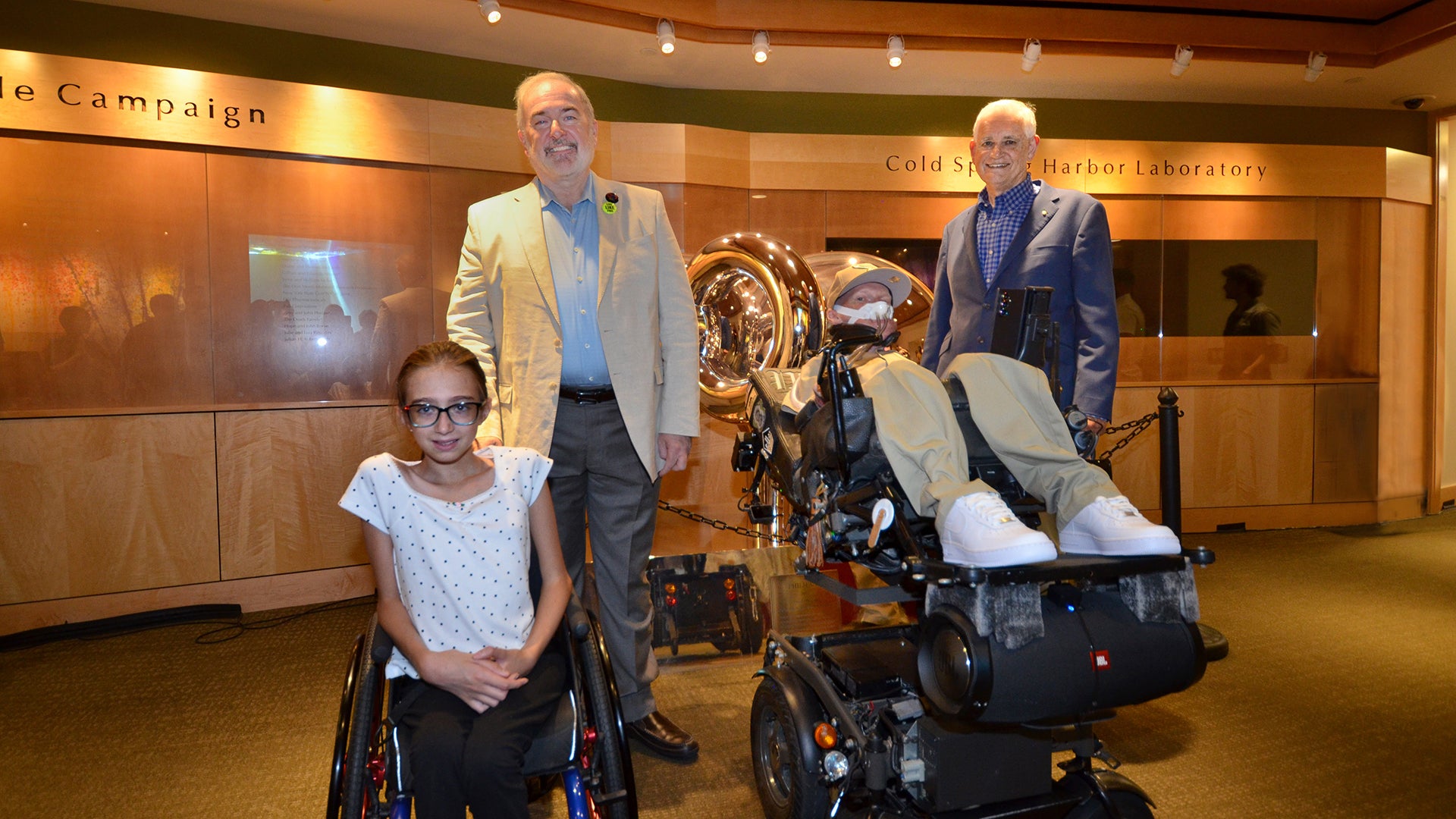On August 27, pioneering digital artist Phil L. Herold donated a chrome “Philifant” sculpture to Cold Spring Harbor Laboratory (CSHL) for the Krainer lab’s transformative, life-saving research on spinal muscular atrophy (SMA). CSHL Professor Adrian Krainer’s work led to the development of Spinraza, the first FDA-approved treatment for SMA. At the time, the neurodegenerative disease...| Cold Spring Harbor Laboratory
It’s a parent’s worst nightmare, finding out your newborn child may never walk or even stand on their own. That used to be the reality for as many as one in 6,000 babies born with spinal muscular atrophy (SMA), a genetic disorder that causes extreme nerve damage, muscle weakness, and sometimes, paralysis. For a long... The post Giving hope to thousands of families appeared first on Cold Spring Harbor Laboratory.| Cold Spring Harbor Laboratory
Cold Spring Harbor Laboratory Professor Adrian Krainer has won the 2025 Heinrich Wieland Prize. Awarded annually by the Boehringer Ingelheim Foundation, the €250,000 prize recognizes exceptional scientists whose pioneering research pushes the boundaries of knowledge in biochemistry, biology, chemistry, and physiology. Krainer received the award for his revolutionary RNA splicing research, which led to the... The post Adrian Krainer wins 2025 Heinrich Wieland Prize appeared first on Cold Spr...| Cold Spring Harbor Laboratory

